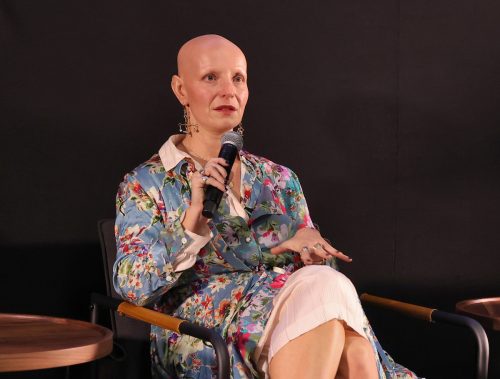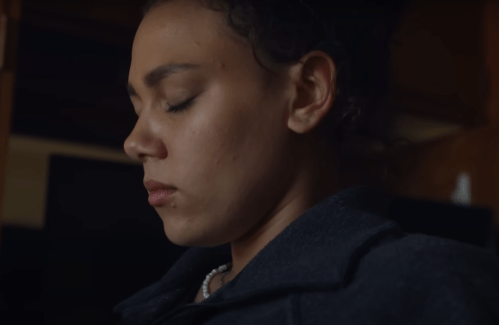Filmmakers Behind “Bama Rush” Doc Had to Hire Security Detail After “Violent” Threats

In the summer of 2021, #BamaRush went viral on TikTok with sorority hopefuls at the University of Alabama using the social media platform to show off their outfits for various recruitment events and discuss the strict rules of the Greek Life process. For those on the outside, these rituals were intriguingly foreign, but for those who were participating—or had participated—rushing a sorority was a bonding experience. The viral explosion led to the new documentary movie Bama Rush, which recently premiered on Max (formerly HBO Max). And the director has said that it was far from easy to infiltrate the fiercely secretive world of University of Alabama sororities in order to make the film.
Filmmaker Rachel Fleit said that it was difficult in the first place to get subjects to agree to be filmed. She also claimed that the production received threats, to the point where they had security with them on campus. Read on to see what else the director said about her surprisingly harrowing experience.
READ THIS NEXT: New Hit Netflix Movie Slammed as “Propaganda” by Outraged Viewers.
Fleit wanted to make a documentary about young women.

Fleit told Primetimer that she had the initial idea to make a documentary about sororities in the wake of the #MeToo movement, but it was shelved as she worked on another project. When she went back to the idea, it happened to be around the same time that #BamaRush became popular on TikTok.
“I had always had the sense that I was going to learn so much about young womanhood by taking a deep dive into the sorority system, and Alabama just felt like the right place to do it,” the filmmaker said.
She also wanted to explore what it means to be a part of a community. “I really went out with that spirit of, I want to talk to these young women and I want to see how we’re similar,” she continued. “I had a sense that we all really just want to belong, and this is how some people do it.”
The documentary also looks into the inner workings of these sororities, including the powerful “Machine,” which AL.com describes as “a secretive and select coalition of traditionally white fraternities and sororities designed to influence campus politics at the University.”
A rumor ran rampant around the university.
Fleit’s first roadblock was that it was a challenge to find students to participate in the film because of sorority rules. She and her team reached out to hundreds and eventually found their four stars—two college students and two high school seniors. She also couldn’t film inside of sorority houses.
Things only got hairier from there. A rumor spread on TikTok that Fleit was secretly recording footage inside of the sororities, including by having people wearing hidden microphones. Students warned each other not to participate in the film.
Then, in August 2022, The New York Times published an article about Alabama rush that mentioned the documentary and confirmed Fleit as the director. The article noted that sorority members and potential members were concerned about what the documentary might show. One student said that she was rejected from rushing any sorority after being accused of wearing a hidden microphone. She believes that what was actually spotted was a hairband she’d used to tie up her T-shirt.
For more celebrity news delivered right to your inbox, sign up for our daily newsletter.
One subject dropped out of the documentary.

The pushback impacted Fleit’s filmmaking process and made her fear for the safety of herself, her participants, and her co-workers.
“That was the biggest blowback. To gain the trust of my subjects and then to have this [rumor] be swirling during the pinnacle of our filming,” Fleit told Entertainment Tonight. The rumor became part of the film itself, and one of her subjects, Shelby, dropped out before filming was completed.
“Luckily for me, most of the young women I was filming with, understood that we were not doing what this TikTok rumor was saying we were doing,” Fleit told AL.com. “They understood and believed that I still was the same filmmaker for nine months and I wasn’t doing something like secretly mic’ing girls and recording rush conversations or getting inside of the houses or doing that stuff the rumors alleged we were doing.”
Still, Fleit felt she was in danger and told ET that threats had been made. “It felt violent,” she said. “The system was very angry about this film being made.”
She needed security.

The film’s production company, Vice Studios, hired security in light of the negative response.
“It was intense,” Fleit told Primetimer. “But again, it goes back to this institution that’s so strong and powerful and then underneath all of that, which is why I feel so proud of the film we made, are these stakes for belonging.” She added, “My film crew was on high alert because we were a little bit, or a lot, afraid for our physical safety because the backlash felt so strong.”
She also tried to conceal her identity. Fleit has alopecia and decided to wear a wig, which she normally does not, to be less recognizable. “The hardest thing I had to do in my life was take off my wig,” she told TV Guide. “And in order to continue filming in Alabama after that rumor, I had to put a wig back on. It was a lot.”
The director also explained to AL.com that another precaution was taken when it came to how the documentary was announced. “It felt actually like things could get violent, to be honest, and they sent a security detail to be with me at all times while I was filming rush … And we didn’t announce the film until the trailer just keeping safety in mind,” she said.
She’s proud of the film.

Fleit, who also directed 2021’s Introducing, Selma Blair, is pleased with how the documentary turned out, even if not everything went to plan.
“I feel so proud of this movie,” she told ET. “I’m a documentary filmmaker, committed to the truth, and I needed to tell the full story of the sorority system at the University of Alabama, which includes some things that I think maybe just need some improvement or just a closer look at.”
Speaking of the positive impact of sororities, she said, “The good thing about the system is the sisterhood. They take care of each other, even outside of the sisterhood. Female friends help each other and support each other, and we watched some friendships fail in the end, and some people move on, but everybody found their place no matter what it was.”